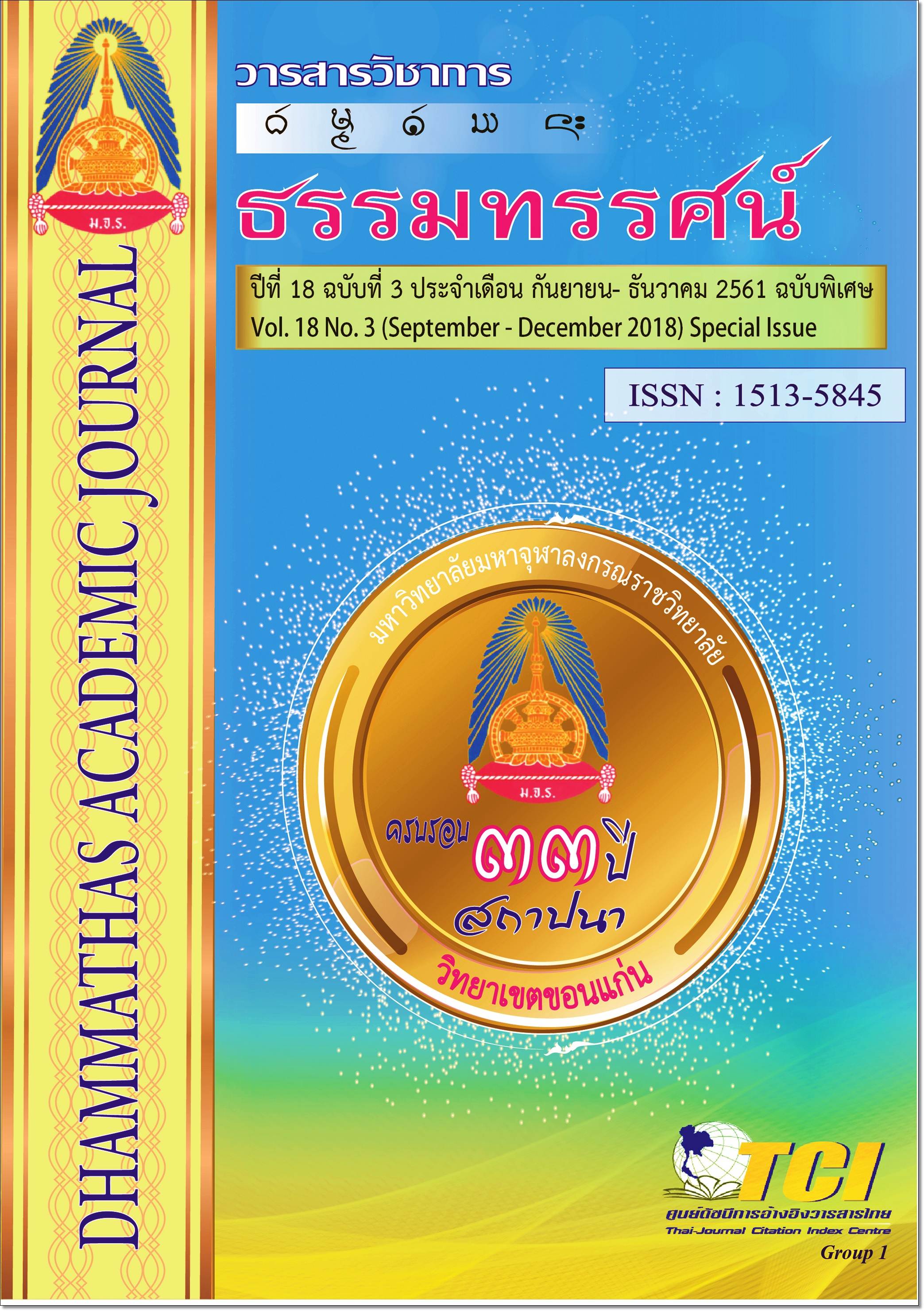A Guideline of Living based on the Principles of Practices for the Retired Layman of The Educational Officers in The Secondary Education Service Area 25
Main Article Content
Abstract
The main purposes of the research were: to study the retired educational officers' problematic conditions in the Secondary Educational Service Area Office 25; to study a method for resolving the retired educational officers' problems in the Secondary Educational Service Area Office 25; to study the guideline of living based on the principles for the layman of the retired educational officers in the Secondary Educational Service Area Office 25. This was a qualitative research. The target group randomized with the purposive random was 26 retired educational officers in the Secondary Educational Service Area Office 25. The research tool was the in-depth interview. The data analysis was done with the descriptive analysis according to an inductive method.
The results of the research are found that Office of the Secondary Education Service Area 25 is a unit under the Office of the Basic Education Commission. The secondary education is available nationally, with 42 areas. The Office of the Secondary Education Service Area 25 is responsible for 82 schools in Khon Kaen province. Its officers are staffed as administrators and teachers in secondary schools. Each of them has performed the duties until retirement. When they have stopped working for a long time, there are many problems categorized in eight aspects: physical, mental and emotional aspects, family members and expense, family, social, economic and cultural aspects.
Based on the research, for the retired officers, the principles for the layman
included the virtues for a good household life (gharāvāsa-dhamma), course of action (kammapatha), bases of social solidarity (saṅgahavatthu), happiness of the layman (gihisukkha) and the dhamma principles for the retired educational officers including the three characteristics (tilakkhaṅa), heedfulness (appamāda-dhamma) and bases of meritorious actions (puññakiriyā-vatthu).
There are two ways of life, suitable for the retired officers:
1. The way in accordance with the principles of practices for the layman by raising the family members with having integrity, patience, patience, sacrifice, called the virtues for a good household life (gharāvāsa-dhamma), avoiding overwhelming other people, stealing, violating the loved things of the others, wrong speech, intoxicated drink, bad words, mischievous words, mischief and having a right thought, called ‘course of actions (kammapatha)’; being characterized with manners of charity, gentle speech, other 1. The way in accordance with the principles of practices for the layman by raising the family members with having integrity, patience, patience, sacrifice, called the virtues for a good household life (gharāvāsa-dhamma), avoiding overwhelming other people, stealing, violating the loved things of the others, wrong speech, intoxicated drink, bad words, mischievous words, mischief and having a right thought, called ‘course of actions (kammapatha)’; being characterized with manners of charity, gentle speech, other assistance and constant acting (saṅgahavatthu); having wealth happiness, expense, without debt and unwholesome behaviors (gihisukkha); diligence, wealth protection, good friend, good life (diṭṭhadhammikattha); faith, precept observation, generosity, wisdom (samparāyikattha).
2. The way according to the dhamma of happiness creation by considering the important characteristics of all things as impermanent, unstable and selfless (tilakkhaṅa); creating heedfulness on the change of life, impermanence, inessentiality, heedfulness in happiness or suffering (appamāda-dhamma) and performing good deeds by conducting generosity, precept observation, good behavior, mind training, humble behavior and so on (puññakiriyā-vatthu).

